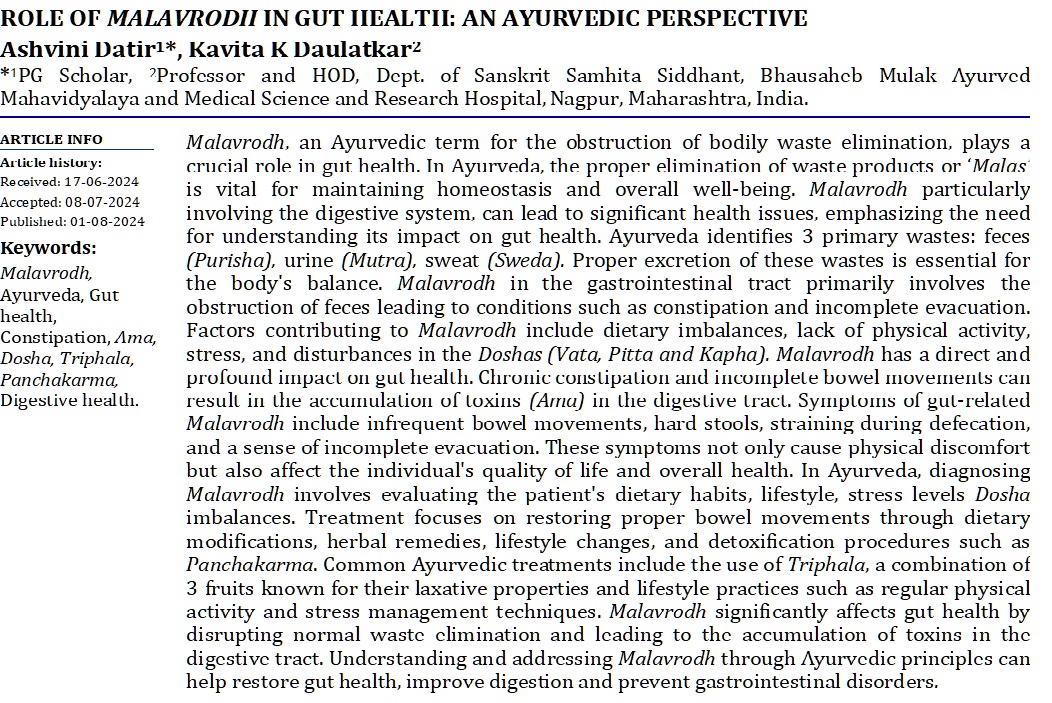Role of Malavrodh in Gut Health: An Ayurvedic Perspective
DOI:
https://doi.org/10.47070/ijraps.v8i7.172Keywords:
Malavrodh, Ayurveda, Gut health, Constipation, Ama, Dosha, Triphala, Panchakarma, Digestive health.Abstract
Malavrodh, an Ayurvedic term for the obstruction of bodily waste elimination, plays a crucial role in gut health. In Ayurveda, the proper elimination of waste products or ‘Malas’ is vital for maintaining homeostasis and overall well-being. Malavrodh particularly involving the digestive system, can lead to significant health issues, emphasizing the need for understanding its impact on gut health. Ayurveda identifies 3 primary wastes: feces (Purisha), urine (Mutra), sweat (Sweda). Proper excretion of these wastes is essential for the body's balance. Malavrodh in the gastrointestinal tract primarily involves the obstruction of feces leading to conditions such as constipation and incomplete evacuation. Factors contributing to Malavrodh include dietary imbalances, lack of physical activity, stress, and disturbances in the Doshas (Vata, Pitta and Kapha). Malavrodh has a direct and profound impact on gut health. Chronic constipation and incomplete bowel movements can result in the accumulation of toxins (Ama) in the digestive tract. Symptoms of gut-related Malavrodh include infrequent bowel movements, hard stools, straining during defecation, and a sense of incomplete evacuation. These symptoms not only cause physical discomfort but also affect the individual's quality of life and overall health. In Ayurveda, diagnosing Malavrodh involves evaluating the patient's dietary habits, lifestyle, stress levels Dosha imbalances. Treatment focuses on restoring proper bowel movements through dietary modifications, herbal remedies, lifestyle changes, and detoxification procedures such as Panchakarma. Common Ayurvedic treatments include the use of Triphala, a combination of 3 fruits known for their laxative properties and lifestyle practices such as regular physical activity and stress management techniques. Malavrodh significantly affects gut health by disrupting normal waste elimination and leading to the accumulation of toxins in the digestive tract. Understanding and addressing Malavrodh through Ayurvedic principles can help restore gut health, improve digestion and prevent gastrointestinal disorders.
Downloads


